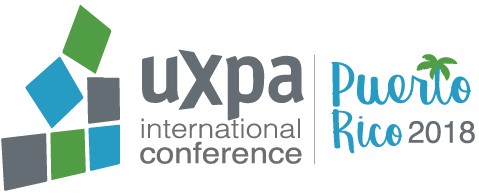

One of the growing areas of investigation and products has been around conversational user interfaces – any of those which support the user having an extended interaction or “conversation”, whether voice or typing, generally via some sort of avatar such as Siri, Alexa, Watson, Cortana and others. We can all probably agree that this is pretty cool stuff, but cool really isn’t enough, and they need to actually provide value enough to support continued usage on the part of the user and return on business opportunities for those that are developing them. We’re moving beyond asking our stereo about the weather or selecting a new playlist. We’re at the beginning of exciting opportunities to design simplicity, engagement, and richness across all sorts of B2B and B2C experiences.
As UX’ers we are concerned about not only making these interactions natural, but also useful and looking at such issues as trust and privacy and confidence in the responses.
The focus of this working session is on how conversational interfaces are changing the way people interact, how designers are approaching this new area of design, and ways we can support the design community as we collectively move forward. This working group will bring together practitioners who have been working actively in this area, at least over most of the past year, to discuss issues they’ve been dealing with and approaches they’ve taken to further our knowledge in this area. The group will aim to:
Colleagues who have hands-on experience creating conversational interfaces of different complexity in various industries and organizational contexts. If more participants apply than we have room for, we will select the set who provides the broadest and deepest coverage of conversational interfaces (e.g., preference for people with unique perspectives).
6-20 UX professionals
Thyra Rauch
Thyra, who has been at IBM for 30+ years, currently works on commerce applications in the procurements and supply chain space and is the UX Researcher for that area. Previously, she worked in a variety of areas including the search and analytics teams. One of her growing areas of interest is AI/Cognitive where she is looking for ways to improve the user experience with interfaces using those technologies.
Thyra uses a variety of research methodologies in her work including interviews, surveys, and contextual inquiries. She has conducted a variety of usability evaluations, in a variety of locations, using a variety of protocols, both for formative and summative purposes, most of them being either done remotely or in a variety of different locations. She has been working with Agile teams for over 10 years and works actively to apply UX principles in an “agile” way.
She has co-taught classes on HCI in the Master’s program at BSU, mentors UX practitioners new to user research and evaluation, and has co-taught tutorials/courses on usability testing and moderation and on Agile UX at UXPA in past years, and also conducted sessions on Agile and ethnography.
Thyra has been an active member of UXPA since 1992. She has served in some aspect on the Conference Committee most every year, including serving as conference co-chair in 1998-1999. From 1999-2008, she served on the Board of Directors in a variety of roles, culminating in her tenure as President from 2006-2007. Previously, she was active in SigCHI, serving as President of a local chapter.
Thyra has a BA in Psychology from Wake Forest, an MA in Psychology from William and Mary, and a Ph.D. in experimental psychology from NC State.
Craig Peters
In over fifteen years in design leadership, Craig has helped teams execute big ambitious projects. Recognized for his ability to solve complicated problems, he guides organizations through bold growth initiatives and inspires project teams to perform at their best. Craig leads workshops on how companies and teams can approach design more effectively, and produce winning user experience designs.
Craig founded and runs Awasu Design, an innovation strategy and design agency in San Francisco. Awasu works with startups and innovation teams within large companies, tackling many design challenges that include conversational interfaces. Craig has presented at UXPA, SXSW, IA Summit, and Service Design Network. Before Awasu Design, Craig co-founded Bolt Peters, a user experience research firm acquired by Facebook.
If you are interested in participating, see the general information on working groups.